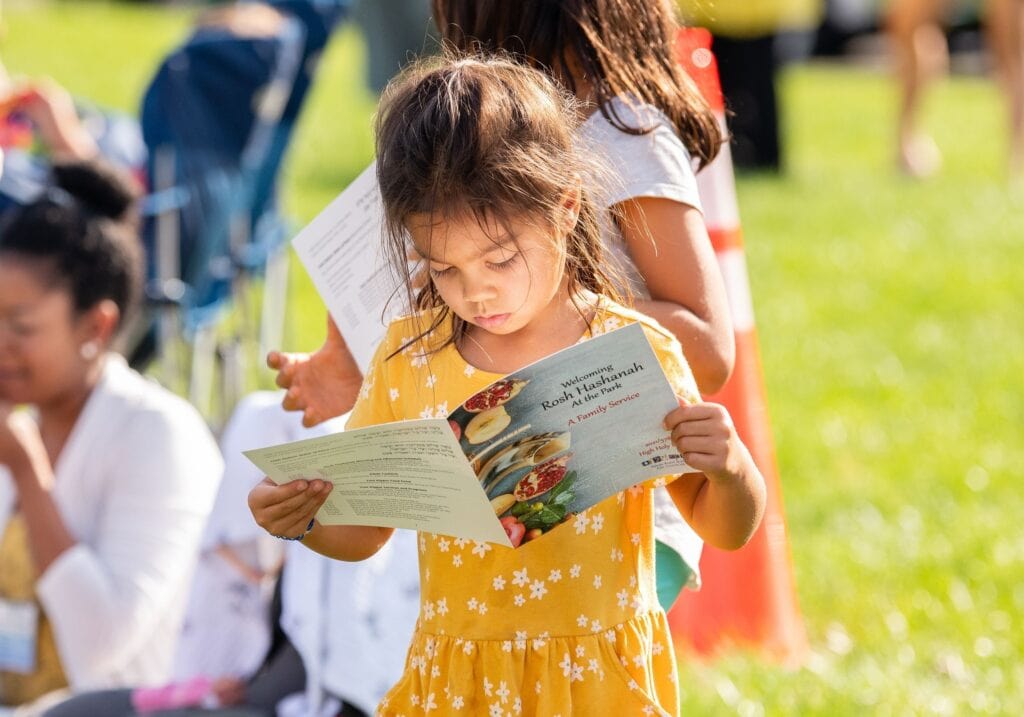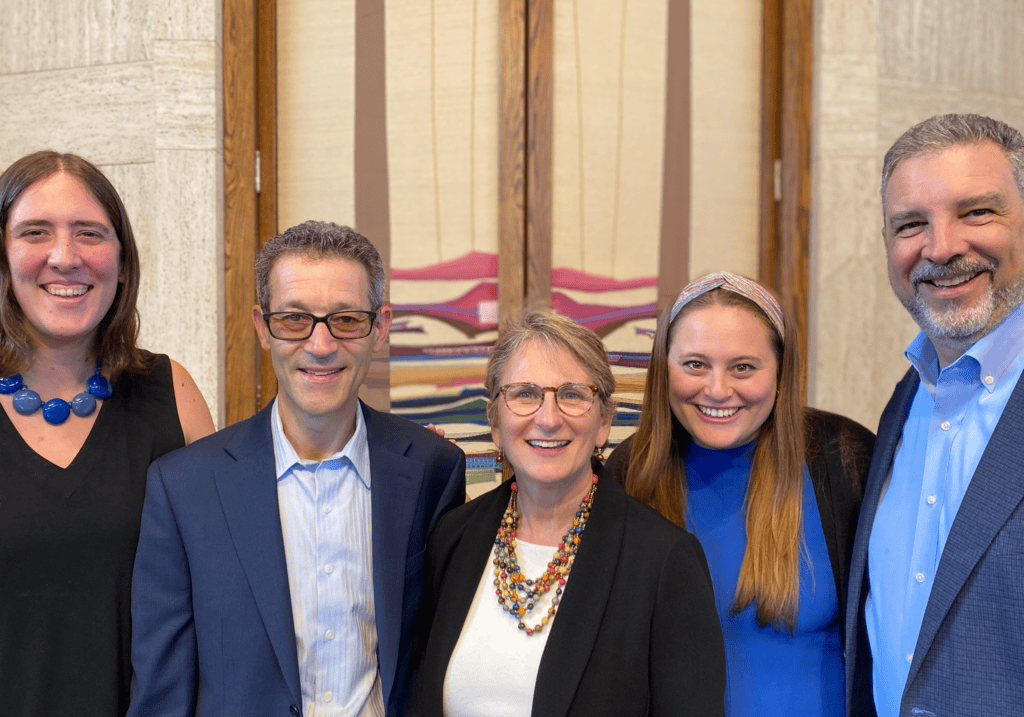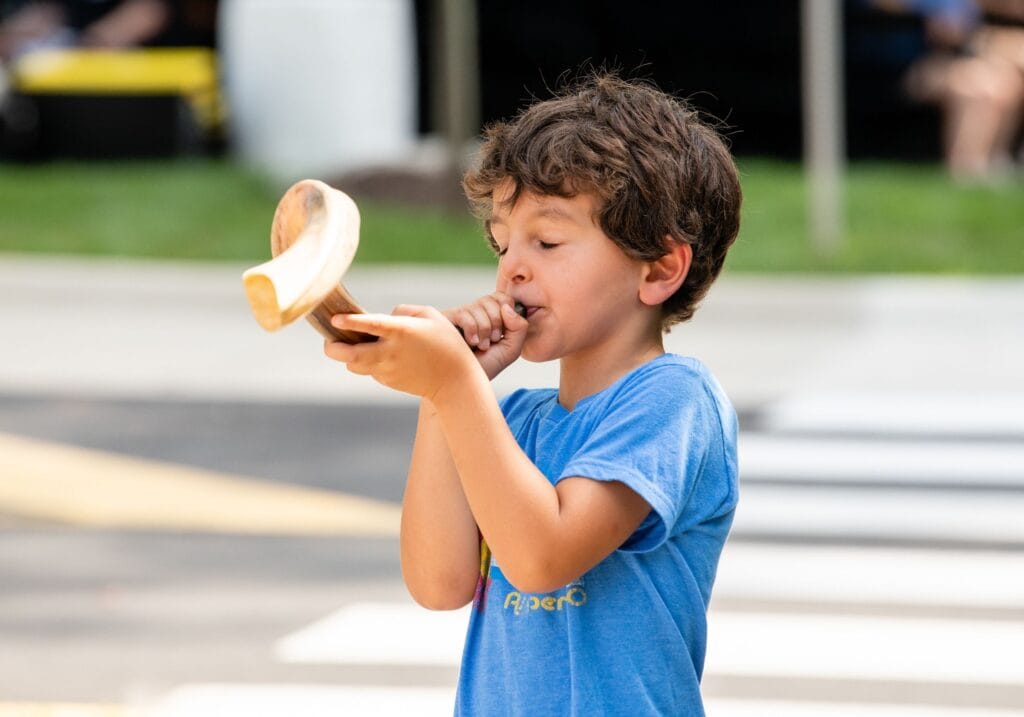


Join Temple Rodef Shalom in celebrating the High Holy Days this October. We feature both in-person and online services. Registration is required for those attending in-person.
Can’t join us in person? We’d love to welcome you online! Please see the schedule below for dates and times of our live stream broadcasts. Click here or use the blue button below to watch!
5:15 PM: Outdoor Family Service led by Rabbi Jeffrey Saxe, Cantor Michael Shochet, Rabbi Alexandra Stein, Cantor Allen Leider, Student Cantor Carly Levin Santalone and band
8:00 PM: Late Main Sanctuary led by Rabbi Amy Schwartzman, Cantor Sydney Michaeli, piano and choir
9:00 AM: Early Main Sanctuary Service led by Rabbi Jeffrey Saxe, Cantor Michael Shochet, piano and choir
11:45 AM: Late Main Sanctuary Service led by Rabbi Jeffrey Saxe, Cantor Michael Shochet, piano and choir
4:00 PM: Combined Tot and Tashlich Service led by Cantor Sydney Michaeli, Student Cantor Carly Levin Santalone, Songleader Jason Flatt and guitar
5:30 PM: Family Sanctuary Service led by Rabbi Jeffrey Saxe, Cantor Sydney Michaeli, Songleader Jason Flatt, Kol Machar Teen Choir and band
8:00 PM: Late Main Sanctuary Service led by Rabbi Jeffrey Saxe, Cantor Sydney Michaeli, piano, choir and cello
9:00 AM: Early Main Sanctuary Service led by Rabbi Alexandra Stein, Cantor Sydney Michaeli, piano and choir
11:45 AM: Late Main Sanctuary Service led by Rabbi Amy Schwartzman, Cantor Michael Shochet, piano and choir
3:00 PM: Music & Meditation – Soothing and meditative music with pianist Tony Nalker and instrumentalists
3:30 PM: Yom Kippur Tot Service led by Cantor Michael Shochet, Songleader Jason Flatt and guitar
4:15 PM: Yom Kippur Service of Forgiveness and Healing Service led by all clergy and piano
5:15 PM : Yom Kippur Yizkor Service of Remembrance led by clergy, choir and piano
6:00 PM: Yom Kippur N’ilah Concluding Service led by all clergy, Cantor Allen Leider, Student Cantor Carly Levin Santalone, piano, choir and band
Click here to return to our main High Holy Days webpage.
The fall is full of Jewish holidays, with the High Holy Days – the 10 Days of Awe (Yamim Noraim) starts with Rosh Hashanah and ends with Yom Kippur – being the most important. This is followed by the Jewish festival of Sukkot, which includes Simchat Torah — part of the 3 Festivals (Sukkot, Pesach and Shavuot) — as the next most important of our holidays. Chanukah, Purim, Tu B’Sh’vat, Lag B’Omer, Yom Ha’atzmaut, Yom HaShoah, and Tisha B’Av are all minor holidays in the Jewish calendar.
Here is a little bit about each of the fall holidays:
Online services are open to both members and non-members, people of all faiths, and any age groups.
No, online services are free and require no registration.
You may click here to visit the Watch Live page of our website at the time of the service. We also live stream to Facebook and YouTube.
Fill out our Welcome Form to let us know you’re ready to take the next step! You may also email us directly at .